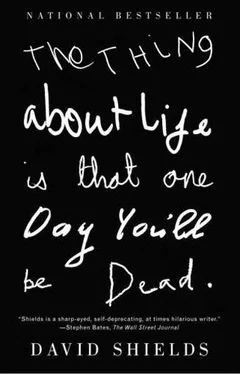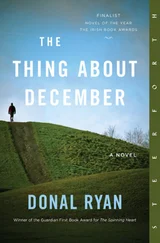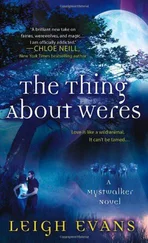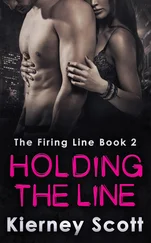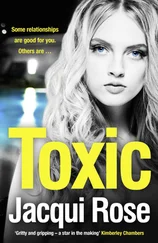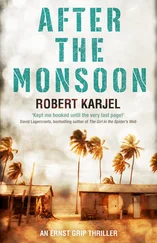After school I’d walk across town, leave my books in my father’s office, then go around the block to play basketball with black kids. I developed a double-pump jump shot, which among the eighth graders I went to school with was unheard of. Rather than shooting on the way up, I tucked my knees, hung in the air a second, pinwheeled the ball, then shot on the way down. My white friends hated my new move. It seemed tough, mannered, teenaged, vaguely Negro. The more I shot like this, the more my white friends disliked me, and the more they disliked me, the more I shot like this. At the year-end assembly, I was named “best athlete,” and my father said that when I went up to accept the trophy, I even walked like a jock. At the time, I took this as gentle mockery, although I realize now he meant it as the ultimate accolade.
From kindergarten through eighth grade all I really did was play sports, think about sports, dream about sports. I learned to read by devouring mini-bios of jock stars. I learned math by computing players’ averages (and my own). At 12 I ran the 50-yard dash in six seconds, which caused kids from all over the city to come to my school and race me. During a five-on-five weave drill at a summer basketball camp, the director of the camp, a recently retired professional basketball player, got called over to watch how accurately I could throw passes behind my back; he said he could have used a point guard like me when he was playing, and he bumped me up out of my grade level. I remember once hitting a home run in the bottom of the 12th inning to win a Little League All-Star game, then coming home to lie down in my uniform in the hammock in our backyard, drink lemonade, eat sugar cookies, and measure my accomplishments against the fellows featured in the just-arrived issue of Sports Illustrated. Christ, I remember thinking, how could life possibly get any better than this?
A little too often my father likes to quote the line “Backward, turn backward, O Time, in your flight, / Make me a child again just for to-night!” Here he is, turning backward: “School always excited me. Easy to understand why: I was a pretty good mixer, had few ‘bad’ days. I knew how to read when I entered first grade; my three older brothers, especially Phil, a columnist for the New York Sun, had seen to that. Learning how to spell was a never-ending source of delight and wonderment; it still is. And I did well after school on the running track and the softball diamond. I got a big charge out of competing against—and usually beating—my fellow students. Soon, I had friends who wanted to bask in my reflected glory.”
When he was in his mid-20s, he attended an open tryout with the Brooklyn Dodgers and lasted all the way to the final round, when someone named Van Lingle Mungo hit every pitch my father threw—onto Bedford Avenue. Undeniably, I inherited my athletic genes from him. When Natalie assisted on the goal that won her soccer team the city championship, he crowed, “The Shields bloodline!”
Bloodline to Star Power (i)
My father’s birth certificate reads “Milton Shildcrout.” His military record says “Milton P. Schildcrout” (he had no middle name; he made it up). When he changed his name in 1946 to “Shields,” the petition listed both “Shildkrout” and “Shildkraut.” His brother Abe used “Shildkrout” his sister Fay’s maiden name was “Schildkraut.” Who cares? I do. I want to know whether I’m related to Joseph Schildkraut, who played Otto Frank in The Diary of Anne Frank and won an Academy Award in 1938 for his portrayal of Alfred Dreyfus in The Life of Emile Zola.
I grew up under the distinct impression that it was simply true—the actor was my father’s cousin—but now my father is considerably more equivocal: “There is the possibility that we’re related,” he’ll say, “but I wouldn’t know how to establish it.” Or: “Do I have definite proof that he was a cousin of ours? No.” Or: “My brother Jack bore a strong resemblance to him; he really did.” From a letter: “Are we really related, the two families? Can’t say for certain. What’s the legend I’ve fashioned over the years and what’s solid, indisputable fact? I don’t know.” “We could be related to the Rudolph/Joseph Schildkraut family—I honestly believe that.”
In 1923, when my father was 13, his father, Samuel, took him to a Yiddish theater on the Lower East Side to see Rudolph Schildkraut substitute for the legendary Jacob Adler in the lead role of a play called Der Vilder Mensch ( The Wild Man ). Rudolph was such a wild man: he hurtled himself, gripping a rope, from one side of the stage to the other. After the play, which was a benefit performance for my grandfather’s union—the International Ladies Garment Workers—my grandfather convinced the guard that he was related to Rudolph Schildkraut, and he and my father went backstage.
In a tiny dressing room, Rudolph removed his makeup and stage costume, and he and Samuel talked. According to my father, Rudolph said he was born in Romania, and later in his acting career he went to Vienna and Berlin. (“Schildkraut” is of German-Russian derivation. “Schild” means “shield” “kraut” means “cabbage.” We’re protectors and defenders of cabbage.) He and his wife and son, Joseph, came to New York around 1910, went back to Berlin a few years later, and then returned to the United States permanently in 1920. (Joseph Schildkraut’s 1959 memoir, My Father and I, confirms that these dates are correct, which only proves that my father probably consulted the book before telling me the story.) Samuel asked Rudolph whether he knew anything about his family’s antecedents—how and when they came to Austria. Rudolph said he knew little or nothing. His life as an actor took him to many places, and his life and interest were the theater and its people. The two men spoke in Yiddish for about 10 minutes; my father and grandfather left. What little my father couldn’t understand, my grandfather explained to him later.
“For weeks,” my father told me, “I regaled my friends and anybody who would listen that my father and I had visited the great star of the Austrian, German, and Yiddish theater in America—Rudolph Schildkraut. What’s more, I said, he was probably our cousin. Nothing in the conversation between my father and Rudolph Schildkraut would lead me or anybody else to come to that conclusion for a certainty, but I wanted to impress friends and neighbors and quickly added Rudolph and Joseph Schildkraut to our family. I said, ‘They’re probably second cousins.’ Some days I made them ‘first cousins.’ Rudolph Schildkraut—as you know, Dave—went on to Hollywood and had a brief but successful motion picture career. I told everybody he was a much better actor than his countryman Emil Jannings.”
Testosterone initiates the growth spurt; increases larynx size, deepening the voice; increases red blood cell mass, muscle mass, libido; stimulates development of the penis, scrotum, and prostate; stimulates growth of pubic, facial, leg, and armpit hair; stimulates sebaceous gland secretions of oil. Throughout high school, my acne was so severe as to constitute a second skin. Oil leaked from my pores. I kissed no one until I was 17.
Acne flourished on my chin, forehead, cheeks, temples, and scalp, and behind my ears. It burned my neck, appeared sporadically on my penis, visited my stomach, and wrapped around my back and buttocks. It was like an unwilling, monotonous tattoo. There were whiteheads on the nose, blackheads on toes, dense purple collections that finally burst with blood, white circles that vanished in a squeeze, dilating welts that never went away, infected wounds that cut to the bone, surface scars that looked hideous, wart-like protuberances at the side of the head. I endured collagen injections, punch grafts, and chemical peels.
Читать дальше
